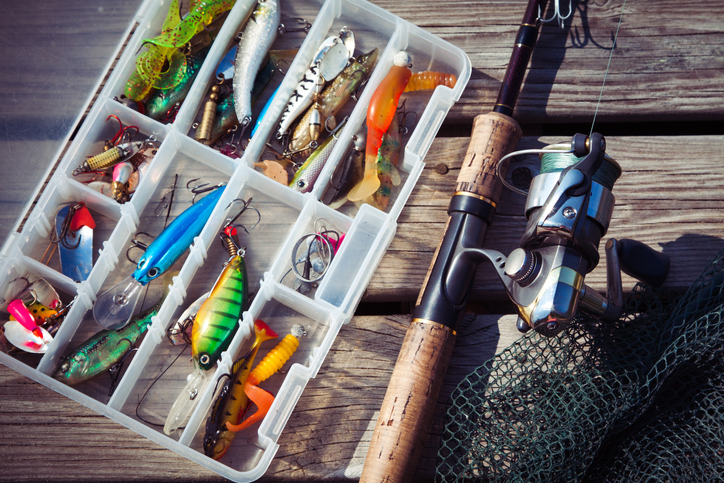The essential fishing gear you need

Are you only just starting with your fishing hobby? Let’s pack your angler’s bag by going through the most essential fishing equipment you need. There is no need to aim for top-of-the-line gear yet— improve your skill level first and then upgrade when the need calls for it.
Fishing rod and reel
Two of the most important things you need are your fishing rod and reel. Without these, you would have to try and catch fish with your bare hands.
For beginners, here are a couple of things to consider when choosing your fishing rod:
- Material: Fishing rods made of graphite or fiberglass are durable and flexible.
- Strength or power: Start out with a medium-strength fishing rod. It’s responsive and powerful enough to help you catch different kinds of fish.
- Length: Ideally, a fishing rod should be about 30 centimeters or 11.8 inches taller than you. This will help you cast your fishing line farther.
Fishing line
To draw your catch, you need a fishing line. Always pack a couple of extras in your bag just in case, as lines often get tangled or bitten off by fish.
It’s also important to keep different types of fishing lines. Basic ones are good for most fish, but if you are angling for stronger game fish, special cords are needed. If you’re fishing in clear water, use thin and clear lines to avoid detection. Meanwhile, monofilament lines are tangle-free, all the time.
Hooks
Hooks are another must for catching fish. You should keep a variety, as they come in different types, mainly single, double, circle, and treble. They also come in a wide manner of sizes, starting from 32 to 19/0.
As a beginner, you will most likely use single hooks in your adventures, so keep yourself well-stocked with these.
Bait and lures
To attract fish to your line (and hook), you’ll need some bait and lure. Both are usually attached at the end of the fishing line.
Live bait is the best kind of bait, especially worms and small freshwater fish. If you don’t have access to live bait, you can use bread, corn, small bits of hotdog, and marshmallow.
Fish don’t eat lures. They are, however, attracted by them. It’s always useful to keep a handful of fishing lures in your bag so you still have something to attach to the line once you’ve ran out of bait.
Keep both light and dark-colored lures, as well as two-toned plastic worms, in a tackle box— these will help you adjust to the weather conditions.
Bobbers and sinkers
Bobbers and sinkers work in tandem to keep your bait stable and close enough to the surface. The former in particular acts as a signal fire for when a fish has taken your bait. If it bobs, get ready.
For bobbers, get a small one, preferably made with plastic. These are responsive and light enough to float near the surface. As for sinkers, keep a handful in various weights and materials.
Fishing is a great hobby to learn. Explore Smith Mountain Lake real estate with me so you can regularly enjoy the bounties of Smith Mountain Lake. Contact me today at 540.493.1690 or Jane(at)JaneAtTheLake(dotted)com.




